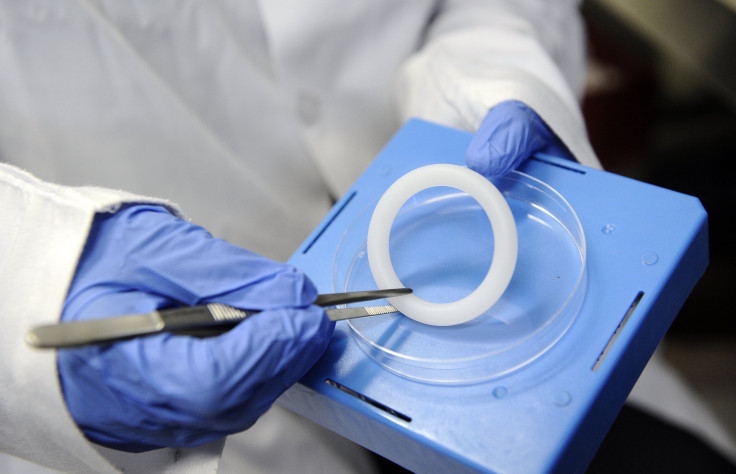HIV Prevention: This Vaginal Ring May Protect You From The AIDS Virus

A new tool in the fight against HIV has entered the ring: Results of a clinical trial published in the New England Journal of Medicine on World AIDS Day say a vaginal ring that is inserted and works in the same way as a birth control ring reduced the risk of HIV infection among the women studied, a group from two countries in sub-Saharan Africa, where the global disease is most prevalent.
The International Partnership for Microbicides developed the ring, which is used on a monthly basis and contains the antiviral medication dapivirine to fight against HIV, preventing the virus from replicating in a healthy cell at the site of infection. During the two-year study period, the Ring Study says, the women using the ring were infected at a rate about 30 percent lower than those on a placebo. That number could be higher if women were to strictly adhere to the medical regimen, as the study showed not all did.
“Most participants were able to use the ring for some time of each month, as shown by the residual levels in the used rings and by the plasma concentrations,” the study notes.
Read: Check Your Blood for HIV Using This USB Device
The World Health Organization estimates about 35 million people have died from HIV and that almost 1 percent of people around the world between ages 15 and 49 are living with the virus, which is spread through sexual contact or through bodily fluids in general and, while manageable, can lead to AIDS if left untreated. HIV, which stands for human immunodeficiency virus, attacks the body’s immune system and weakens it, preventing people from fighting off other infections or diseases. The local impact of the virus varies between regions, with sub-Saharan Africa facing the worst of it — almost one in 25 adults has HIV there, the WHO says, “accounting for nearly 70 percent of the people living with HIV worldwide.” Meanwhile, in the United States, the Centers for Disease Control and Prevention estimate that more than 1.2 million people have HIV but a significant number don’t know they have it. Despite this, the disease is on the decline.
Gay and bisexual men are particularly affected by HIV, as are intravenous drug users. Dr. Zeda Rosenberg, the founder and chief executive officer of the International Partnership for Microbicides, also noted how vulnerable women are. She said in a statement from the nonprofit, “Women continue to become infected at alarming rates, especially in Africa, and need new options they can use to help protect their health.” According to IPM, HIV and AIDS are the leading cause of death internationally for women of reproductive age.
“The dapivirine vaginal ring was developed to provide discreet, self-initiated, monthly use with the potential for high adherence,” the Ring Study explains. “Self-inserted vaginal rings, which provide a sustained release of antiretroviral drugs over time, have the potential to offer women a prevention option that does not require daily or pericoital use.”
Further studies are underway to collect more data about the anti-HIV vaginal ring, according to the statement, and the nonprofit will begin seeking regulatory approval in 2017. It is also exploring the possibility of a vaginal ring that will last for as long as three months and protect against both HIV and unwanted pregnancy.



























